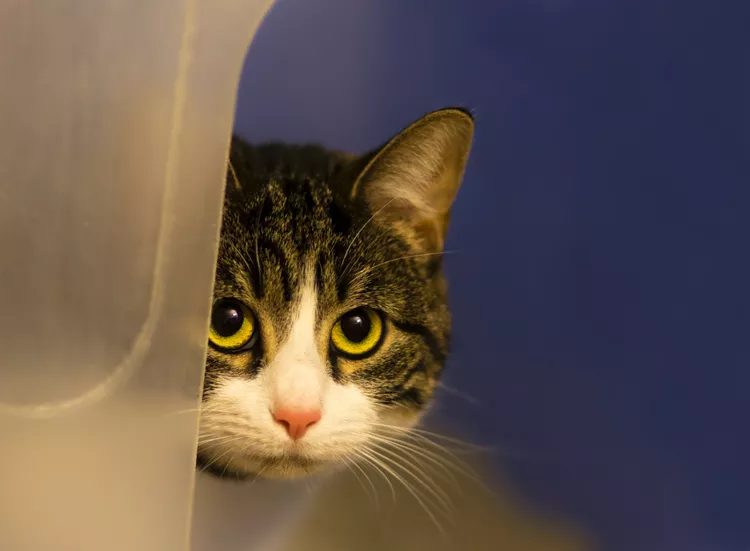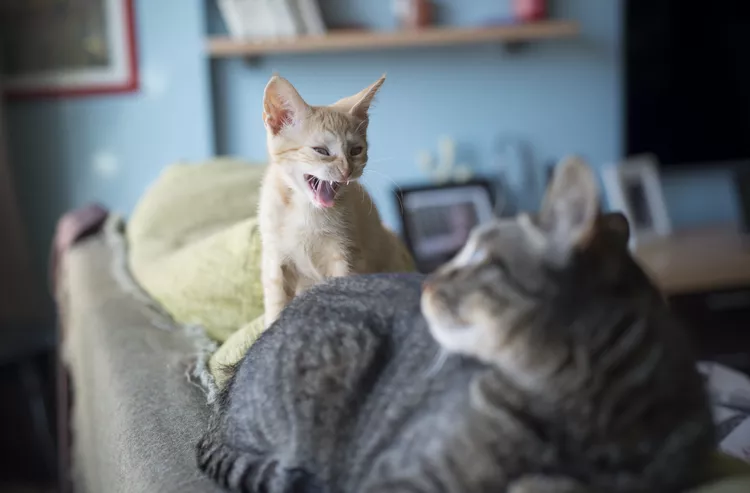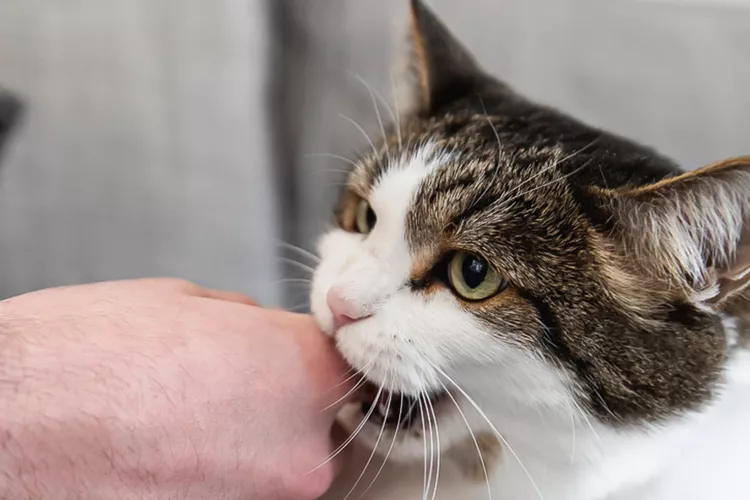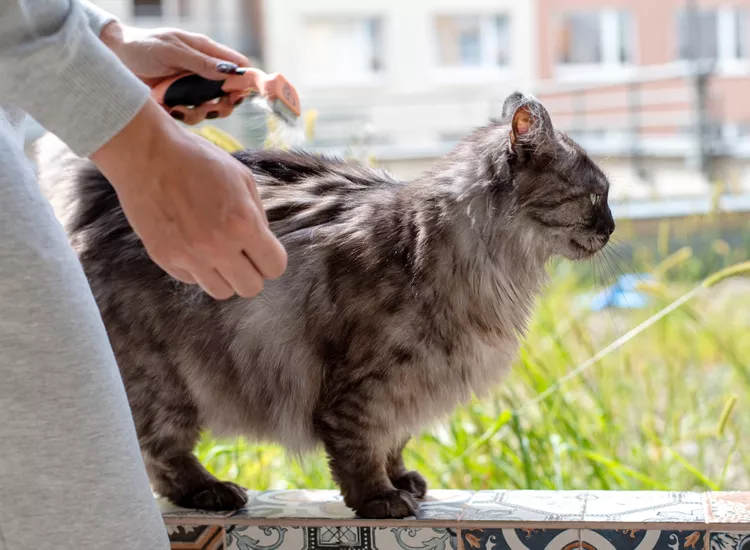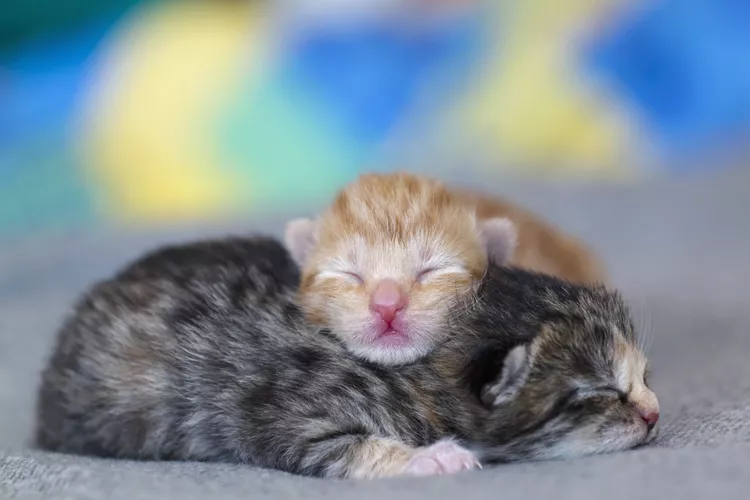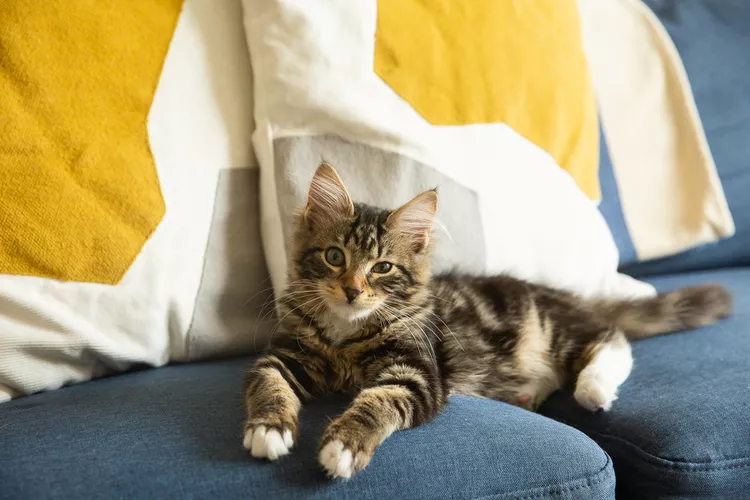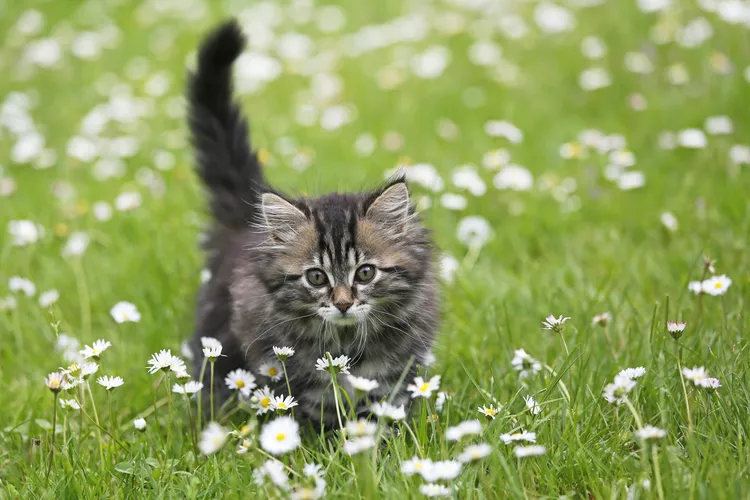Peruse any pet store or boutique shop and you will probably find a selection of catnip toys for cats. Catnip can make your cat act like a kitten again, or it may even soothe them into a state of relaxation. What is catnip, though, and why do some cats react to it so drastically?
What Is Catnip?
The Nepeta cataria plant, more commonly known as catnip, belongs to the Lamiaceae plant family. This family also includes herbs such as rosemary, oregano, basil, and sage. This family of plant also contains Nepeta musinii, or catmint, which can also attract cats. Catnip can be found wild in Europe, Asia, and North America. Besides attracting cats, it has been shown to be an effective mosquito repellent. The leaves, stems, and flowers of catnip produce an aromatic oil that contains a compound called nepetalactone. This is the compound that your cat is reacting to when they react to catnip.
The Allure of Catnip
Cats are oftentimes attracted to catnip because of the odor the nepetalactone gives off. It is believed that nepetalactone acts as a pheromone, binding to the receptors in your cat's nose and nasal passages.
Most cats, but not all, will noticeably react to catnip. Some cats may get aggressively playful, agitated, and excited, while others may become calm and relaxed. The effects of catnip can last anywhere from 10 to 30 minutes. Once the effects have worn off, it might be a few hours before your cat reacts to catnip again. Some folks describe a cat's reaction as a catnip high, but there's no research to say whether catnip is effecting cats on a neurochemical level the same way mind-altering drugs would in people.
Despite the popularity of catnip cat toys, not all cats will react to catnip. In fact, as much has half of cats won't react to catnip at all!
Whether your cat will react to catnip is actually based on their genetics. There is a gene that can determine whether your cat will react to it, and this gene is inherited. If your cat doesn't react to catnip they may react to other plants, such as silver vine.
Silver vine, sometimes known as matatabi, belongs to the Actinidiaceae plant family and can be found in the mountains of Japan as well as China. Cats that react to catnip will also react to silver vine because it contains nepelactone too, but it also contains an aromatic compound called actinidine. Actinidine is also a cat attractant, and most cats that don't react to nepetalactone will react to actinidine. Silver vine can be found either in powder form or as chew sticks, which are essentially cuttings from the plant itself.
How to Give Catnip
Catnip can be purchased in a few different forms. Dried catnip can be bought in tubs, and there are sprays containing the nepelactone oil. You can even grow catnip in your yard! Keeping a tub of dried catnip around can refresh your cat's toys and can also aid in toy rotation.
Toy rotation is something that you can do to help create a mentally enriching home environment. Instead of leaving all of your cat's toys out all of the time, keep a portion of them in a plastic storage container sprinkled with dried catnip. Once a week, give the container a shake and rotate new toys in as you pick up old toys from around your house.
Dried catnip tends to work better to refresh toys than sprays, as the sprays tend to have less nepetalactone in them. The oils in dried catnip can still dissipate over time, though. Store any unused dried catnip in the freezer to extend its shelf life.
Dried catnip can also be sprinkled on top of new beds and scratching posts/toys. This can encourage your cat to their new toys and beds, instead of scratching up your furniture.
Safety Tips
Catnip is incredibly safe for cats. Even if your cat gets into a large amount of it, it's considered non-toxic. Of course, that doesn't mean there aren't any concerns with catnip toys. Depending on your cat's reaction, they may chew their catnip toys apart, pulling out stuffing in attempts to eat any dried catnip inside the toy. If your cat were to ingest any stuffing or fabric material from their catnip toy, they can get an intestinal foreign body or blockage that may require surgery. Cats that react aggressively to catnip may also be more likely to accidentally scratch or bite you in their play. These actions aren't meant to be harmful, but they can cause more damage than a play swat or a love bite. If your cat tends to get overly excited about catnip, use caution when giving them catnip.
Catnip can make some cats do some quirky things. For the most part, though, it's a safe addition to any cat's toy bin.

:strip_icc():format(webp)/cat-birthday-cake-5184012-hero-ae20d693ff824e28900fb8e30c37a2cb.jpg)
